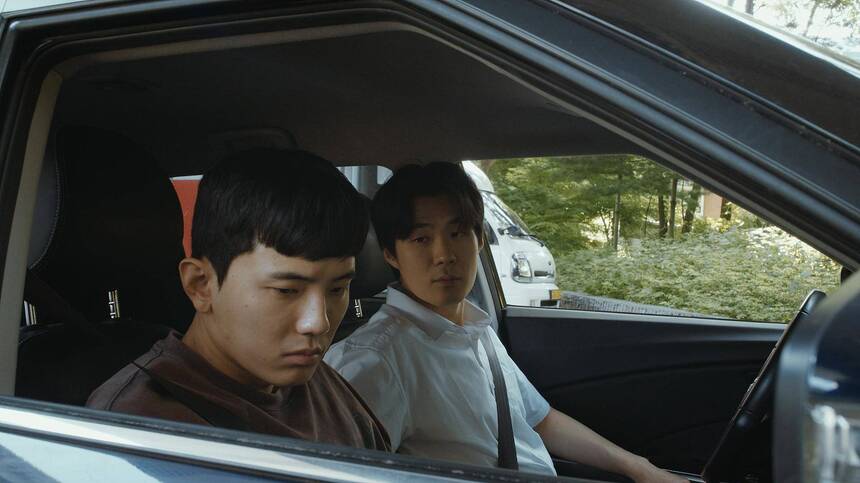Busan 2023 Review: HERITAGE, Korea's Generational and Social Divides Under the Loop in Ruminative Indie

What sort of a world has the older generation left behind for the incoming one, how do they expect them to navigate it, and what do they anticipate in return? These questions and more concerning the uneasy ties that bind Korea's generational divides drive Lee Jong-su's debut film Heritage, one of the competition titles in the New Currents section at Busan this year.
At the heart of Lee's ruminative and engaging tale are two men, Jinyoung and Youngjin. Jinyoung works in the system as a social welfare worker, while Youngjin is a wayward youth performing community service at the same community center.
Kicked out of his home by his father, Youngjin stalks the urban arteries of Seoul and sleeps in a little pocket of concrete nestled between overlapping roadways. Learning of this, Jinyoung tries to find a way to help him, but seeing no solution in the system, he invites Youngjin to stay with him temporarily, a fact he is careful to hide from his colleagues.
Jinyoung's father suffered financial ruin during the IMF Crisis of 1997 and this prompted him to push his son into the civil service, a safe profession shielded from the sharp swings of speculation. Living in a simple studio, Jinyoung leads a boring life, playing video games in his down time.
Youngjin's presence adds some color to Jinyoung's life, but ultimately their different roles (or lack of) in society mean that their paths can't stay together forever. Just like the apparatus he works for, Jinyoung is well-intentioned, but just like the way Youngjin slipped through the cracks of a porous social welfare net, so too does he fall through the cracks in Jinyoung's life.
Another regular face at the social welfare center is that of the elderly Sunrye. During her visits, the lonely Sunrye talks Jinyoung's ear off about her daily swimming lessons at the pool -- a curious motif concerning continual movement that keeps her rooted to the same spot -- and her successful son, who she is estranged from. In fact, because of her child's documented assets, she finds herself unable to draw benefits from the state, but this doesn't prevent her from bragging about him.
Empathic of Youngjin's plight but not above exercising his own hierarchical standards on his slightly younger roommate, Jinyoung is a relatable as a well-meaning and flawed protagonist. By contrast, Youngjin is a more inscrutable character. His stoic behaviour affords us only an opaque window into his thoughts and his artistic temperament reinforces this. The digital videos he shoots to capture abstract details of his surroundings, reminiscent of Wes Bentley's stoner teenager in American Beauty, keeping us on the outside looking in.
Heritage's deliberate pacing and cagey narrative are initially somewhat challenging but Lee's patient treatment of his subject eventually pays off. He draws us in with symbolic urban tableaux and challenges us to consider how Korea's complex social system perpetuates itself.







